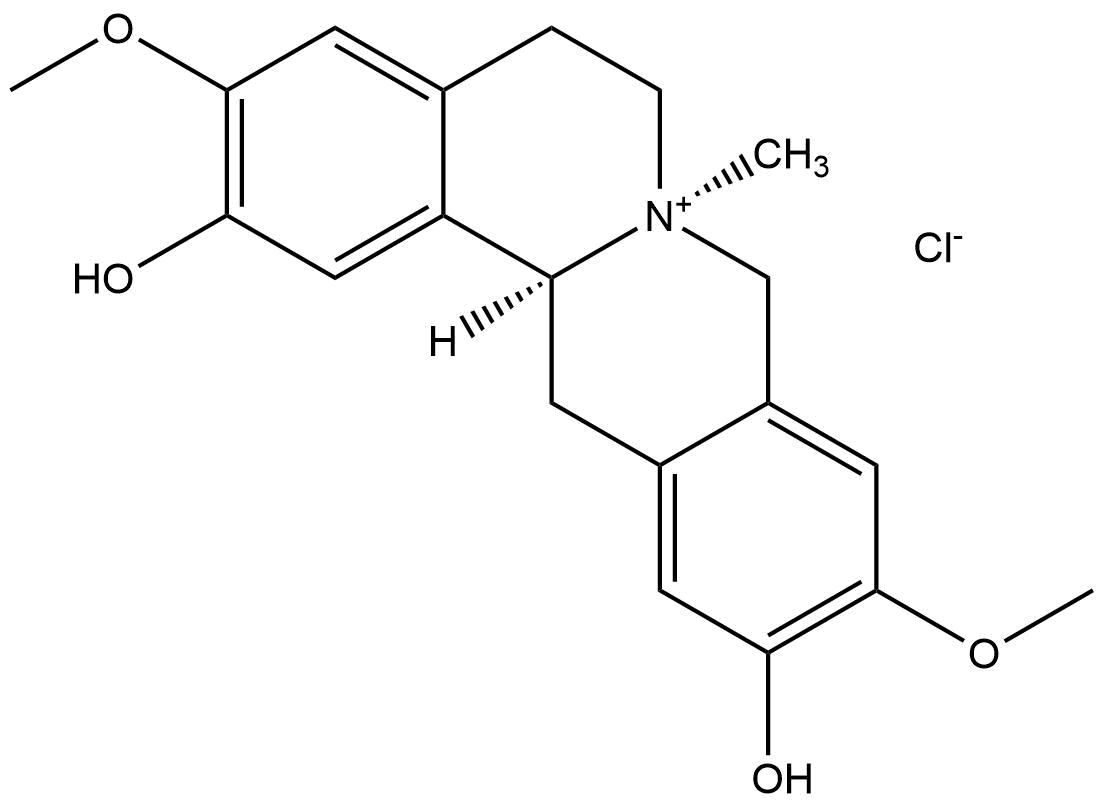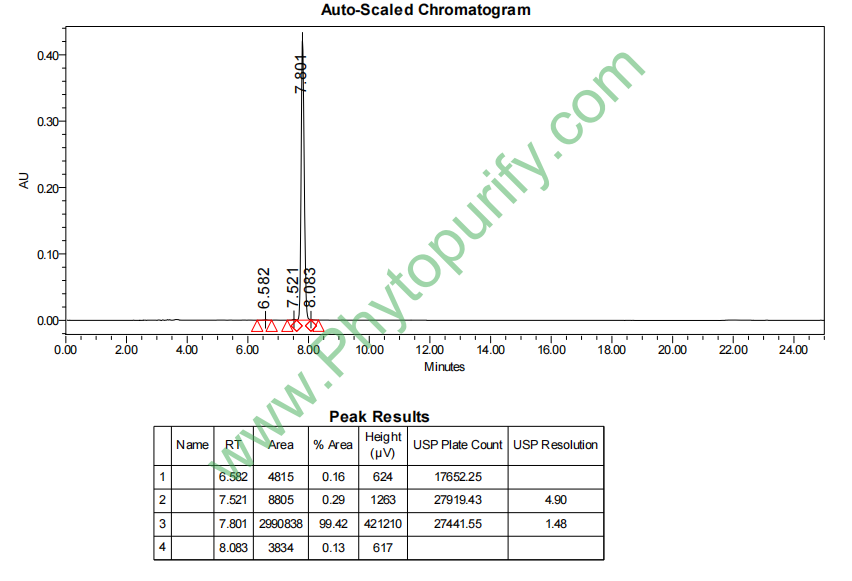
Phellodendrine chlorideCAS No.:104112-82-5
|
||||||||||
 |
|
|
||||||||

| Catalogue No.: | BP1084 |
| Formula: | C20H24ClNO4 |
| Mol Weight: | 377.865 |
Synonym name:
Catalogue No.: BP1084
Cas No.: 104112-82-5
Formula: C20H24NO4+
Mol Weight: 342.414
Botanical Source:
Purity: 95%~99%
Analysis Method: HPLC-DAD or/and HPLC-ELSD
Identification Method: Mass, NMR
Packing: Brown vial or HDPE plastic bottle
Can be supplied from milligrams to grams.
For Reference Standard and R&D, Not for Human Use Directly.
Inquire for bulk scale.
Description:
Phellodendrine chloride has anti-nephritic activity, may be due to its ability to inhibit the proliferation or the migration of macrophages and cytotoxic T lymphocytes in the glomeruli.
Description:
Phellodendrine chloride has anti-nephritic activity, may be due to its ability to inhibit the proliferation or the migration of macrophages and cytotoxic T lymphocytes in the glomeruli.
References:
Acta Poloniae Pharmaceutica, 2016, 73(4):855-864.
Decoction process optimization and quality evaluation of Yi-Huang decoction by HPLC fingerprint analysis.
Yi Huang decoction (YHD) has been used as one of famous traditional formula because of its unique effectiveness against gynecological diseases. YHD is composed of five herbs, including the rootstock of Dioscoma opposita Thunb. (Dioscoreaceae), the kernel of Etayale ferx Salisb. (Nymphaeaceae), the bark of Phellodendron chinense Schneid. (Rutaceae), the seed of Plantago asiatica L. (Plantaginaceae), and the seed of Ginkgo biloba L. (Ginkgoaceae).
METHODS AND RESULTS:
To effectively control the quality, the processing method for YHD was optimized by means of single factor test as well as orthogonal test in this study. A completely validated method based on HPLC coupled with diode array detector was performed on a Kromasil C(18) column at 30° with mobile phase of 0.1% aqueous phosphoric acid and acetonitrile. As a result, HPLC fingerprint on the basis of the chromatographic data from 32 batches of samples was obtained, which contained 44 common peaks. Among these common peaks, 6 peaks were identified as geniposidic acid, berberine hydrochloride, palmatine hydrochloride, Phellodendrine chloride, magnoflorine, and verbascoside, respectively, based on their retention time relative to the standards. Meanwhile, the contents of these 6 compounds were also simultaneously examined.
CONCLUSIONS:
In sum, this study offered valuable information for the proper processing and quality control for YHD.
HPLC of Phellodendrine chloride
